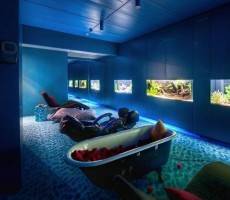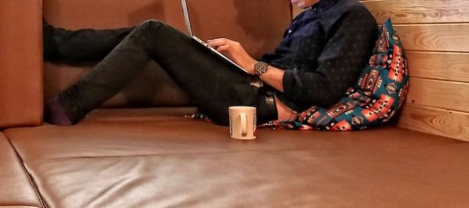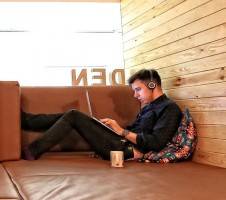April 1, 2016
HS2 & Fourth Industrial Revolution + Digital natives + FM outsourcing rise 0
 In the latest Insight Newsletter; Richard Morris questions why the UK still persists with the 9-5 mantra; Sara Bean argues HR must treat people like humans, not resources; Mark Eltringham says the construction of the HS2 high speed rail line ignores the fact that technology is fast negating its very existence and wonders why the woefully anachronistic and dated Display Screen Equipment regulations are still in use. News that the outsourcing of real estate and facilities management has hit record levels; flexible working is the key to Hong Kong’s record number of startups; firms are betting on millennials to plug their digital knowledge gaps and worklife balance is a major draw for US workers. Download our Insight Briefing, produced in partnership with Connection, on how the boundless office can be freed from the shackles of time and place and access the latest issue of Work&Place. Visit our new events page, follow us on Twitter and join our LinkedIn Group to discuss these and other stories.
In the latest Insight Newsletter; Richard Morris questions why the UK still persists with the 9-5 mantra; Sara Bean argues HR must treat people like humans, not resources; Mark Eltringham says the construction of the HS2 high speed rail line ignores the fact that technology is fast negating its very existence and wonders why the woefully anachronistic and dated Display Screen Equipment regulations are still in use. News that the outsourcing of real estate and facilities management has hit record levels; flexible working is the key to Hong Kong’s record number of startups; firms are betting on millennials to plug their digital knowledge gaps and worklife balance is a major draw for US workers. Download our Insight Briefing, produced in partnership with Connection, on how the boundless office can be freed from the shackles of time and place and access the latest issue of Work&Place. Visit our new events page, follow us on Twitter and join our LinkedIn Group to discuss these and other stories.

































March 31, 2016
Government needs to wise up to the Fourth Industrial Revolution 0
by Mark Eltringham • Comment, Property, Public Sector, Technology
(more…)